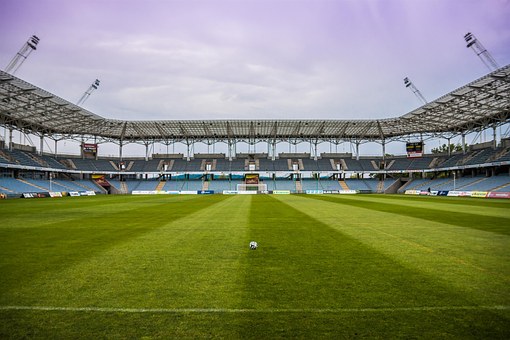Why Notts County's woes show business in football must change
(SPORTS TECHNOLOGY)

Notts County fans gathered around Meadow Lane to call upon owner Alan Hardy to sell the club as soon as possible.
On Wednesday, the club faces a High Court date that could decide it's future, with a sale of the club yet to occur and the National League season starting within the next month.
There have been unsubstantiated rumours of manager Neal Ardley walking out of the club after he, allegedly, had not been paid on time with Hardy's company having undergone huge financial difficulty.
This news should represent a reminder that, at a time when clubs like Tottenham, Ajax and Norwich are providing award-worthy demonstrations of how to run a club well, this is in other respects a very precarious time for business in football.
Along with Notts County - 'The World's Oldest Football League club' - Bolton Wanderers and Bury have also seen their immediate futures come under direct threat.
Ken Anderson, Steven Dale and Hardy were the owners of each club respectively; and it is fair to say neither covered themselves in glory – although, in the latter’s case, it is fair to acknowledge he put a lot of his own money into the club and perhaps had the players he invested in performed, he would be perceived in a different light.
Anderson, Dale and Hardy all released statements on a fortnightly basis and many of them did not show the desired understanding for what the implications of their mismanagement had been on the fans, the community and everyone associated with the club.
On top of this, clubs such as Southend and Macclesfield failed to pay their players on time at least once last season – and Coventry will not be playing in their home city next term. Is this all just down to poor leadership at boardroom level?
Of course, some owners have handled finances irresponsibly and should certainly take the blame for that.
However, these problems also point to a wider, structural issue within the business side of English football.
Sky Sports agreed on a £4.464bn deal to broadcast Premier League matches live from 2019-2022; with so much money in the game, why is it not trickling down?
In the EFL, 80% of the wealth goes to Championship clubs, 12% to League One clubs and 8% to League Two.
The problem with such a big gulf in payments is that firstly, it portrays the higher division as a ‘holy grail’ and secondly, it teases ambitious clubs to outspend their means to try to get there.
In the case of Fleetwood Town, they can afford to sign Paul Coutts – a top half Championship calibre midfielder when fit – because they have a wealthy chairman in Andy Pilley who willingly accounts for financial losses. This helps their chances in the league. They're 6/1 to get promoted to the Championship next on Betway as of 10 July. That kind of investment in a club in the lower leagues can have a serious effect. Just look at Wolverhampton Wanderers as an example of medium-term success.
In Bury’s case, though, they had a chairman in Stewart Day who signed old, injury-prone players - like Stephen Dawson and Jermaine Beckford – of on paper high-pedigree.
That could have been rewarded in promotion in 2017-18. Instead, the spending spree backfired and although Bury were promoted the following season, they are left with a mentally unstable owner in Dale and a financial crisis that threatens their existence.
To avoid a repeat of further cases like the one we have seen at Bury, it is important to level the playing field somewhat so that clubs can take one or two calculated risks to give themselves a chance of promotion without suffering fatal consequences.
Of course, we should not expect League Two clubs, for example, to gain the same revenue as Manchester City or Manchester. They secure major sponsorship deals on a regular basis and have their own growing media platforms. The distribution of funds should be in part be related to the external interest they generate.
Equally, however, we should also recognize what football ‘clubs’ were invented for; the clue is very much in the name – people grouping together to help one another and becoming a hub for their local community.
Elite clubs cannot be responsible for the community in every town across England – and nor should they be – we therefore need a fairer distribution of wealth so that football clubs in this country can truly communicate with and represent as many people as possible.
For that to happen, we need the FA to take more responsibility for the circulation of funds in this country – otherwise, we risk more cases like the situation at Notts County and other clubs happening over again.


